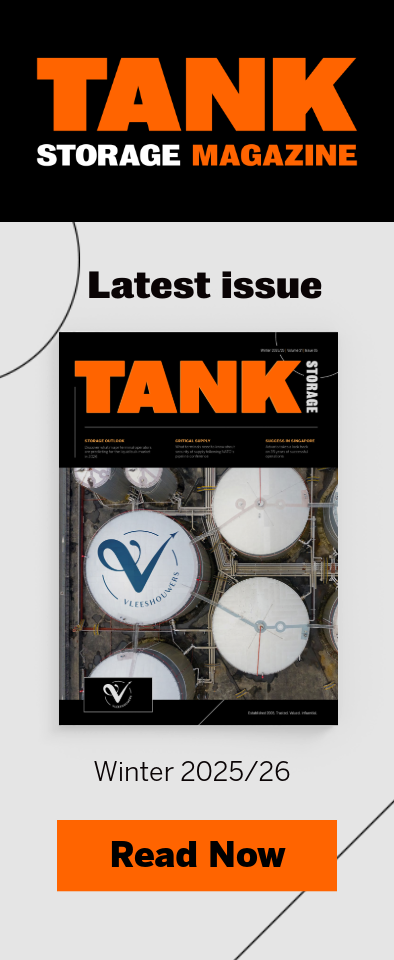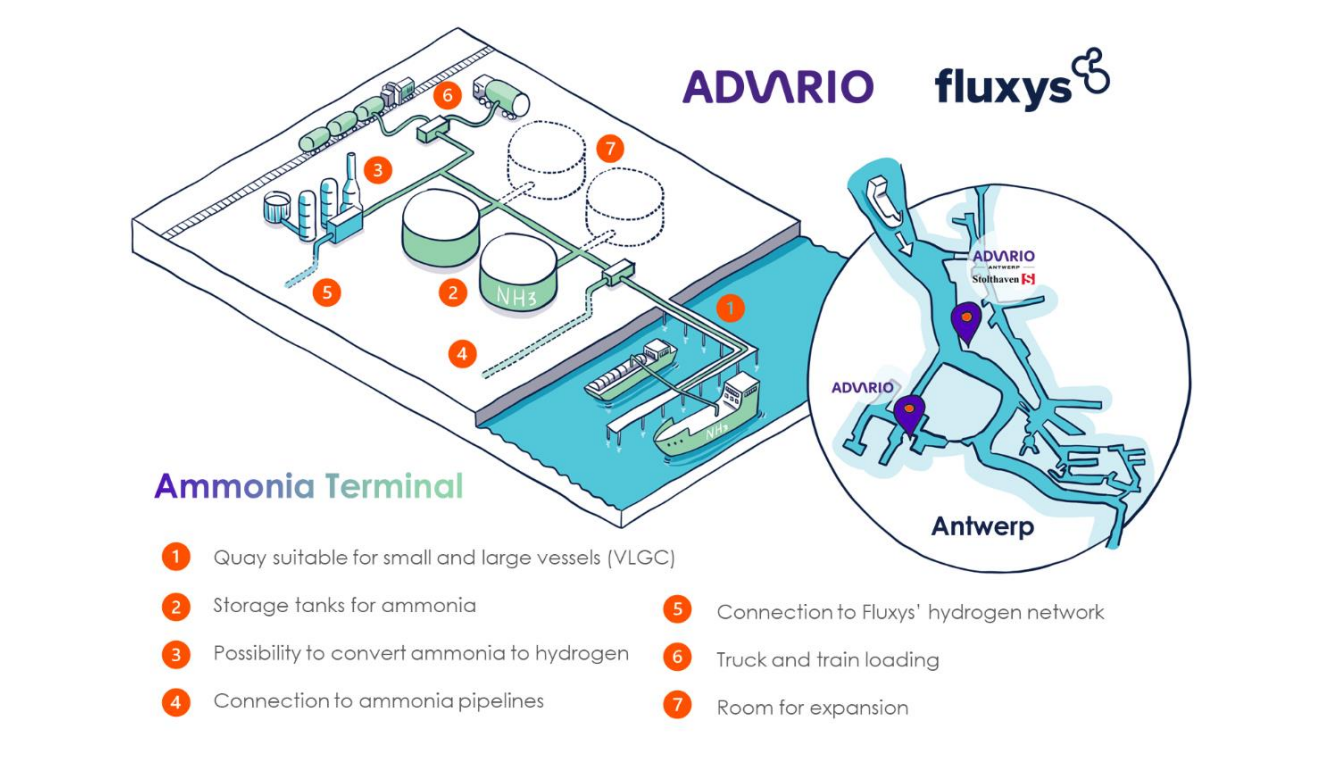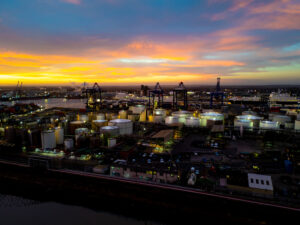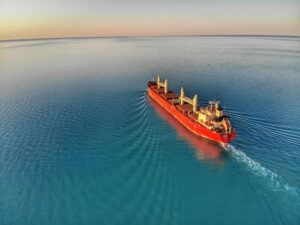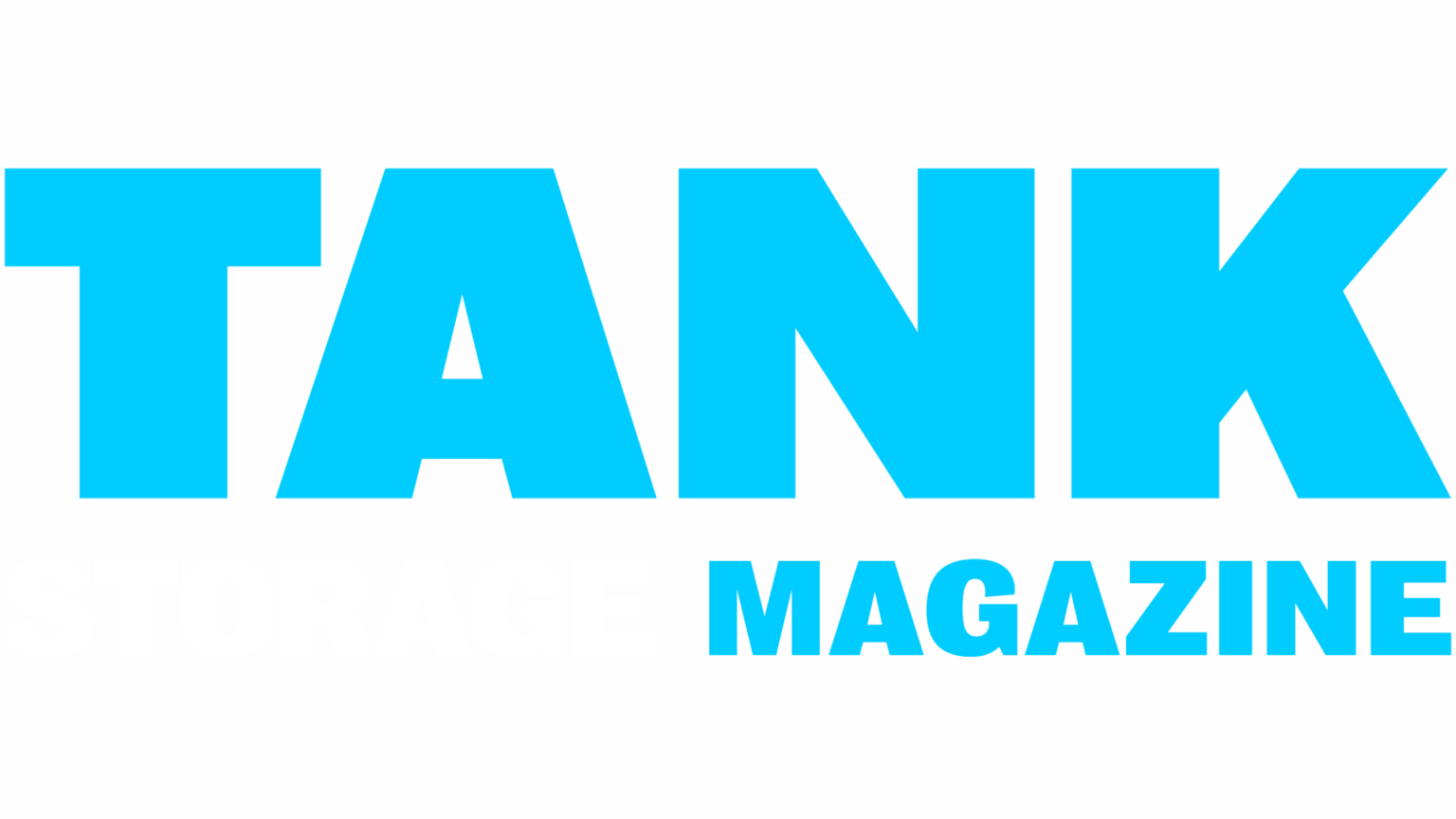Fluxys, Advario Stolthaven Antwerp, and Avario Gas Terminal have joined forces to study the viability of an open-access green ammonia import terminal at the Port of Antwerp-Bruges. The plan includes offering the market a solution to growing demands for importing and storing green energy and raw materials in connection to ongoing decarbonisation.
Fluxys, Advario Stolhaven Antwerp (a 50:50 joint venture with Stolthaven Terminals) and Advario Gas Terminal want to determine the optimum ammonia terminalling solution for northwest Europe. The prospective operational date for the terminal is 2027, with Fluxys and the Advario terminals currently engaging with major industrial operators and energy suppliers for the introduction of their project.
The terminal will aim to deliver storage and multimodal sendout solutions for ammonia, while optionally also providing facilities to convert ammonia back into hydrogen. The terminal will be connected to the Fluxys open-access hydrogen network to ensure supply through northwest Europe.
The ammonia import terminal coincides with the partners’ strategy for implementing Europe’s hydrogen strategy and the REPowerEU plan by providing decarbonisation infrastructure and effectively making Belgium a European hub for the import and export of molecules essential to the carbon-neutral economy. REPowerEU has set a target of 20 million tonnes of green hydrogen consumption by 2030, one-fifth of which should be covered by ammonia imports.
Fluxys CEO, Pascal De Buck says: ‘Combining and leveraging our terminalling and technology expertise will enable us to fast-track the development of key solutions for importing low-carbon energy and feedstock. Fluxys aims to be a decarbonisation driving force and this project is a landmark venture in helping build the infrastructure to carry the molecules for a carbon-neutral society’.
Ammonia is essential in the decarbonisation of Europe and importing it is an efficient way of attaining large quantities of green energy and raw materials from overseas, where the abundance of solar and wind energy can be used to make hydrogen (H2), which can then be combined with nitrogen (N2) from the air to produce ammonia.
- Ammonia is a carbon-free molecule more efficient and cheaper to store and transport than hydrogen.
- At its destination, ammonia can be used as a raw material in the production of, for example, fertiliser, thus contributing to the global food supply.
- Ammonia can be used directly as a sustainable fuel in the shipping industry. Ammonia can also be converted back into green hydrogen, which can power turbines, fuel cells and engines – all without direct CO2 emissions. As a sustainable energy source, ammonia can help Europe diversify its energy supply and reduce its carbon emissions.

